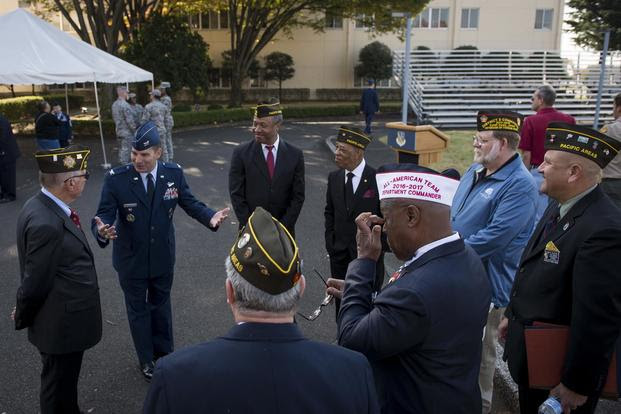Lost Care and Broken Promises: Military Retirees React to Tricare Changes

After Tricare officials announced sweeping changes to the locations where retiree and military family health users can access on-base care, hundreds of Military.com readers have posted comments, feedback and worries via social media, email and the stories on this site.
For many, feelings center around a pair of issues: access to needed care and broken promises.
The Defense Health Agency early this month announced plans to halt care for military retirees, retiree families and active-duty family members at 38 stateside Military Treatment Facilities (MTFs), instead treating active-duty patients only. The changes are expected to roll out over five years, and officials pledged to complete the process only when they’ve guaranteed each patient has care in the civilian community.
But many military retirees pushed back, saying that their removal from those 38 locations and others, such as Ireland Army Medical Center at Fort Knox, Kentucky, and at Camp Lejeune, North Carolina, is already in motion. In many cases, they said, their care has not been handed off at all.
Related: Here’s the List of Military Clinics That Will No Longer Serve Retirees, Families
Near Naval Submarine Base New London in Groton, Connecticut, Lauren Hawes is struggling to find care for her husband, who had back surgery just a week before his Jan. 30 retirement date. When she attempted to refill his pain medication on his first day as a civilian, she found that he had been removed from on-base care upon retirement, and that no new doctor or specialists had been assigned.
“He was told he would have no disruption of care and could continue with his primary-care manager until he chose to transfer everything to the [Department of Veterans Affairs]. David is still waiting for the ‘first available appointment’ with his new, assigned [primary-care manager]. We are currently paying out of pocket for him to continue his vital treatment plans,” she told Military.com in an email.
A spokeswoman for the New London clinic told Military.com on Feb. 13 that, while it is not accepting new patients, no enrollees had been removed from that facility.
At the military hospital on Camp Lejeune, which is scheduled for expansion, retiree family member Lisa Collela said she was removed from on-base specialist clinics in December before securing care elsewhere. Collela, who has been diagnosed with erythrodermic psoriasis, sees a dermatologist monthly to receive injections for her condition, without which her limbs swell and become covered in lesions. She also sees a rheumatologist quarterly for psoriatic arthritis.
Collela said she last received her injection in late December, but learned early that month that any other appointments must be with a civilian provider in the community. That provider, she said, did not have any openings until March 3, leaving her without injections for more than two months. After her condition deteriorated, she visited an urgent care, which helped her get seen sooner — on Feb. 26, still almost two months since her last visit.
The new doctor, however, refused to use the medication she had been on that worked well, opting to try something new that could require even more frequent visits. And in addition to now paying co-pays for doctor visits, which she did not have to do on base, the drug itself costs more.
“Being removed from these clinics has caused my health to decline drastically. … My limbs are beyond swollen. This is not the normal size of my legs. My feet are covered, making wearing shoes uncomfortable and heels for work impossible,” she wrote in a Facebook post. “I can barely use my right hand and my left is becoming stiff. … My body is covered with these lesions (except face, arms, scalp) and is slowly spreading into very uncomfortable places because my PCM cannot prescribe the medications I take for these conditions.”
Near Waco, Texas, retired sailor Jerry Hill echoed a sentiment shared by many of the retirees who contacted Military.com after the early February stories: Blocking them from care at the military clinics isn’t just an inconvenience, it’s a broken promise.
“Many retirees chose where to retire based on the ability to use most of these facilities because acquiring care at local civilian facilities is very difficult or even impossible because those facilities limit the number of Tricare retirees in their hospitals,” he wrote. “This will ruin many retirees’ lives. Where is the support and concern for those who have earned that care as promised during their service for the United States of America?”
Florida-based retiree Ralph Rassmusen agreed.
“Why do I feel discriminated against being an old person? I guess they don’t care about the old folks’ vote,” he wrote in an email. “I know that you are aware of all this, but shout louder.”
— Amy Bushatz can be reached at .
Read more: US Soldier in Korea Has Active-Duty Military’s First Case of Coronavirus

No comments yet.